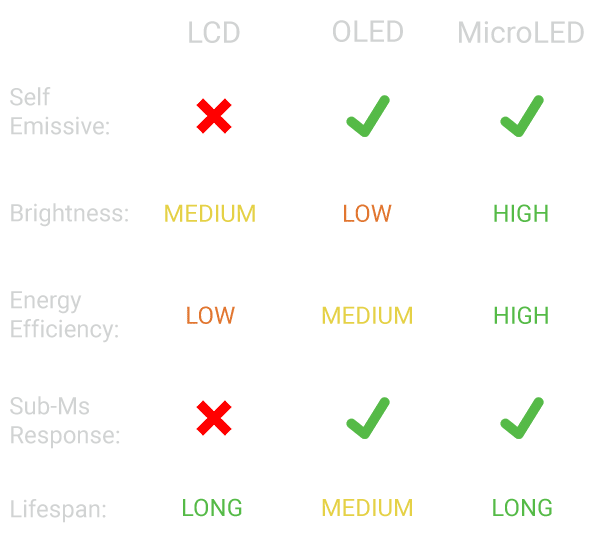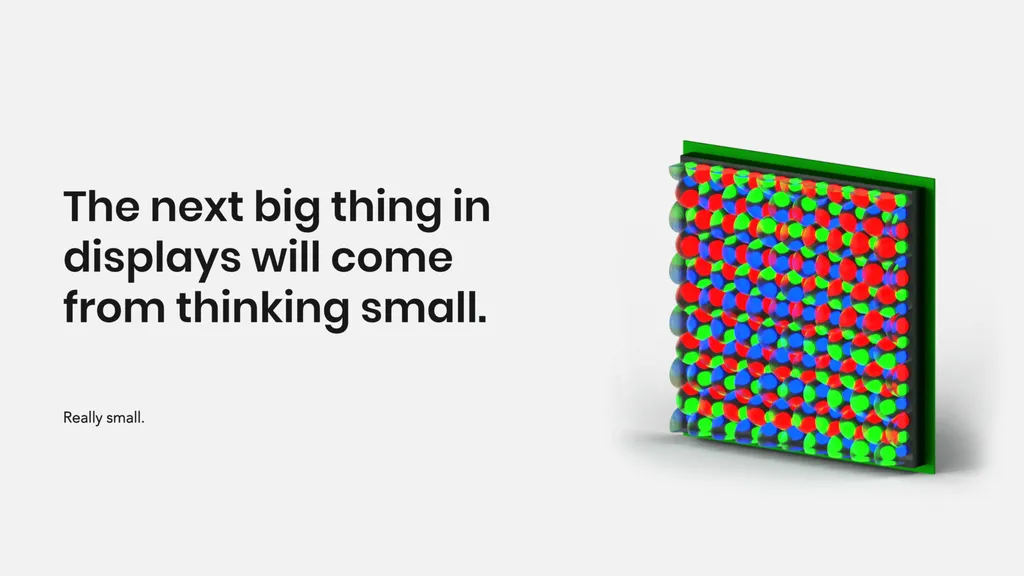Google acquired AR MicroLED display startup Raxium.
The acquisition suggests Google may be working on AR glasses. Meta plans to release glasses in “a few years”, and reports suggest Apple plans to as early as 2025. In 2020, Meta signed a deal to buy several years worth of output from MicroLED supplier Plessey.
The Information reports that Meta and Snapchat (Snap inc) both previously expressed interest in acquiring Raxium, with Snap even having exclusive talks with Raxium for parts of December and January, “before being pushed aside by Google, which had a right of first refusal through a research partnership with Raxium”.
Almost all electronic displays today are either LCD, including its many variants, or OLED. LCD pixels provide color but separate backlights provide the light, which limits the contrast possible. OLED pixels are self-emissive, enabling true deep blacks and infinite contrast.
To be clear, “miniLED”, “QLED”, and similar names are just marketing terms for variants of LCD with improved backlight technology or tiny shutters for better contrast. MicroLED is truly new display tech.
MicroLED is self-emissive like OLED, but should be orders of magnitude brighter than OLED, as well as significantly more power efficient. This makes them uniquely suitable for consumer AR glasses, which need to be usable even on sunny days yet powered by a small and light battery.

While all major electronics companies are actively researching microLED – including Samsung, Sony, and Apple – no company has yet figured out how to affordably mass manufacture it for consumer products.
Interestingly, The Information cited a Google source as saying the company is looking to acquire more AR glasses components suppliers. “Google has realized you can’t just own the operating system” for such devices, this person reportedly said. If true, Google could be planning to sell AR hardware, not just provide the software.
This article was originally published March 23 when the acquisition was reported by The Information. It has been updated as Google confirmed the news.






























